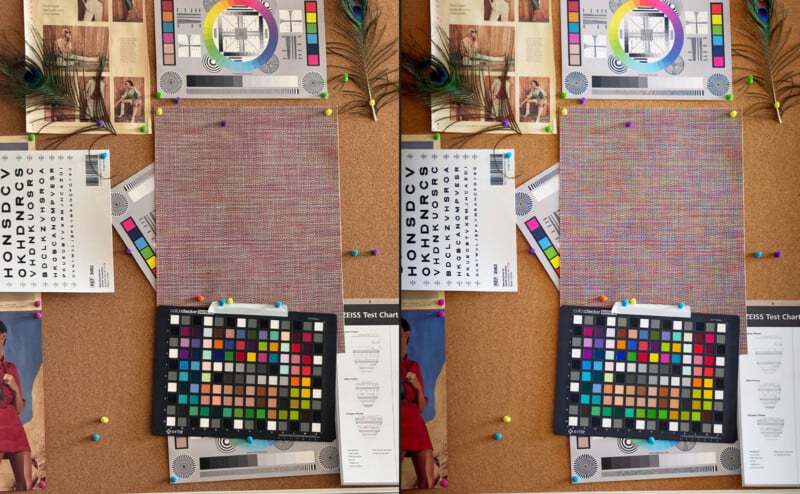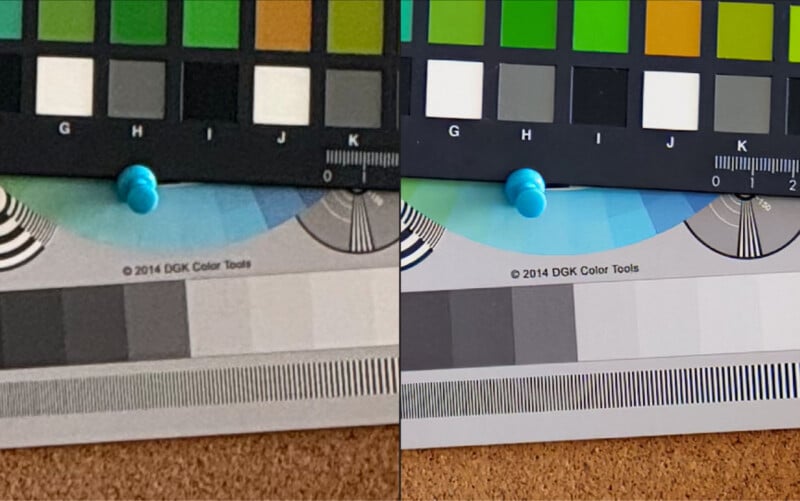![]()
Glass Imaging, a company that showcased its ability to dramatically improve the quality of smartphone images thanks to its specialized neural network, has received $9.3 million in a seed funding round led by Google Ventures.
The cash backing is described as an “extended seed funding round” that was led by Google Ventures and joined by Future Ventures, Abstract Ventures, and LDV Capital.
Additionally, the company also announced the release of independently tested and validated software, Glass AI, for smartphone manufacturers to enhance resolution and image clarity on current and future devices.
Glass Imaging says it uses artificial intelligence to “extract the full image quality potential from hardware on current and future smartphone cameras by reversing lens aberrations and sensor imperfections.” In a discussion with PetaPixel last November, the company said that its lackluster software that is holding back the new iPhone 15 Pro Max’s telephoto camera.
“The full potential of this hardware is limited as the accompanying software from Apple doesn’t extract all the detail this lens can capture,” Glass Imaging claimed at the time.

“Our restoration networks correct optical aberrations and sensor issues while efficiently removing noise, and outperform traditional Image Signal Processing (ISP) pipelines at fine texture recovery. They produce truly stunning ultra-detailed results across light levels and across the zoom range,” Tom Bishop, Ph.D., Founder and CTO, of Glass Imaging says.

Starting today, Glass Imaging’s claims can actually be put to the test thanks to it making its software available for smartphone manufacturers. Glass says it works with OEMs to train and deploy Glass AI modes on existing and upcoming smartphone camera hardware to significantly enhance and improve image quality on any device.
To back its claims, Glass Imaging sent its software to DxOMark, which tested its technology using a Motorola Edge 40 Pro device. DxOMark claims that the results showed the telephoto camera score improved by almost two times, allowing it to surpass the image quality of the iPhone 15 Pro Max in that specific area.
Glass Imaging has several examples of its technology on its website, including an image captured on the Edge 40 Pro.
“The GlassAI powered Motorola device saw massive improvements in detail preservation, effective resolution, and noise reduction, boosting its performance by 50 points on the Tele score, reaching the top 15 among all smartphones of DxOMark database,” the companies say.
“We put smartphone cameras through a rigorous testing process to measure performance across a number of conditions and use cases,” Frédéric Guichard, CEO & CTO, at DxOMark says. “Our tests show that the addition of GlassAI technology significantly improved the Tele image quality on the device we’ve tested and reduced noise indoors and outdoors.”
Several examples of what Glass Imaging claims its technology can do can be seen in PetaPixel‘s prior coverage, but clearly at least Google sees merit in the technology — or at least in the vision of Glass Imaging’s founders.
“Glass Imaging’s co-founding team has deep entrepreneurial roots and decades of startup leadership experience, and we are excited to work with the team as they enter this next growth phase,” Erik Nordlander, General Partner at Google Ventures says. “Tom Bishop and Ziv Attar [founders of Glass Imaging] have a clear vision for the future of imaging technology where all Glass-enabled smartphone cameras will surpass the quality and clarity of traditional DSLRs.”
